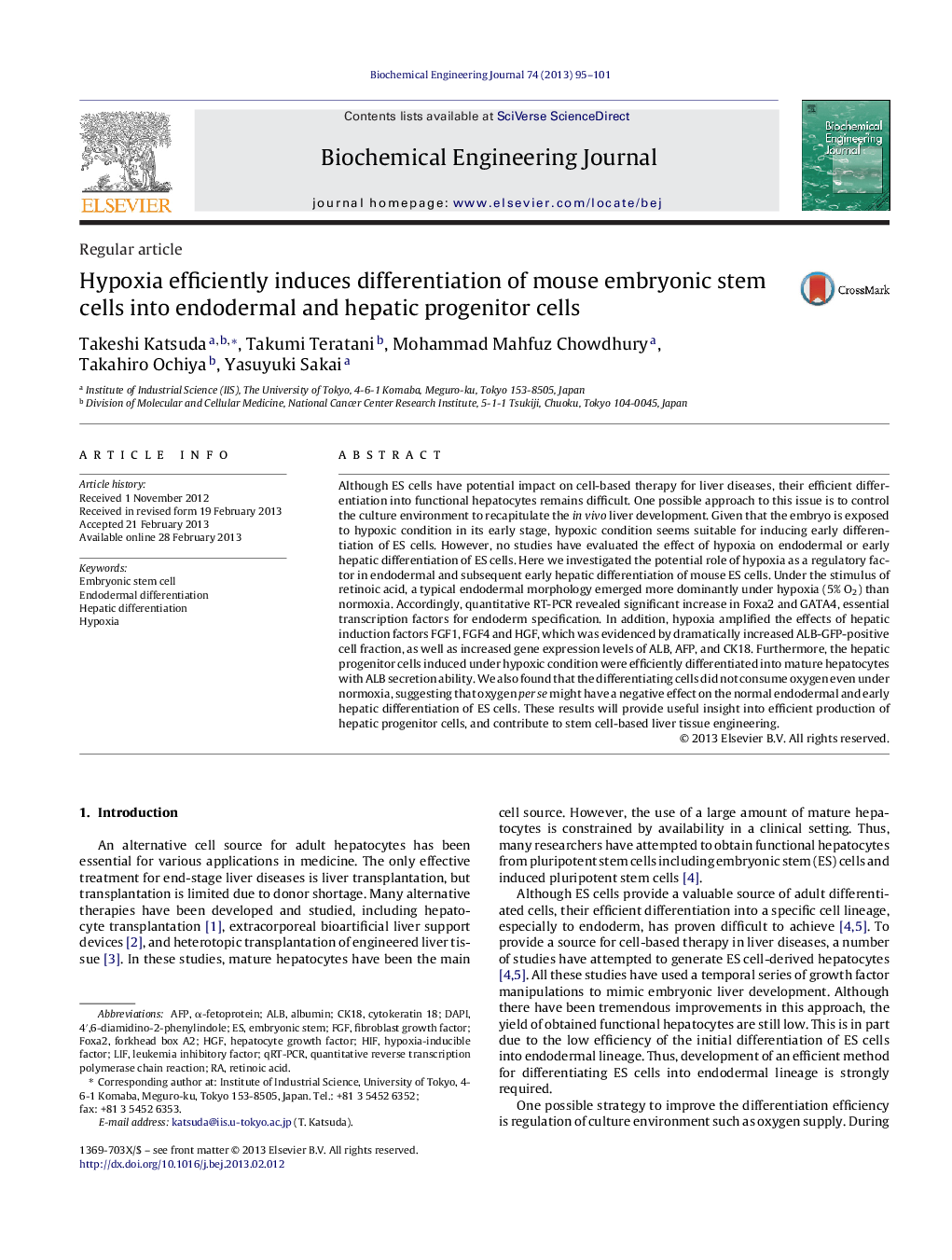| Article ID | Journal | Published Year | Pages | File Type |
|---|---|---|---|---|
| 3406 | Biochemical Engineering Journal | 2013 | 7 Pages |
Although ES cells have potential impact on cell-based therapy for liver diseases, their efficient differentiation into functional hepatocytes remains difficult. One possible approach to this issue is to control the culture environment to recapitulate the in vivo liver development. Given that the embryo is exposed to hypoxic condition in its early stage, hypoxic condition seems suitable for inducing early differentiation of ES cells. However, no studies have evaluated the effect of hypoxia on endodermal or early hepatic differentiation of ES cells. Here we investigated the potential role of hypoxia as a regulatory factor in endodermal and subsequent early hepatic differentiation of mouse ES cells. Under the stimulus of retinoic acid, a typical endodermal morphology emerged more dominantly under hypoxia (5% O2) than normoxia. Accordingly, quantitative RT-PCR revealed significant increase in Foxa2 and GATA4, essential transcription factors for endoderm specification. In addition, hypoxia amplified the effects of hepatic induction factors FGF1, FGF4 and HGF, which was evidenced by dramatically increased ALB-GFP-positive cell fraction, as well as increased gene expression levels of ALB, AFP, and CK18. Furthermore, the hepatic progenitor cells induced under hypoxic condition were efficiently differentiated into mature hepatocytes with ALB secretion ability. We also found that the differentiating cells did not consume oxygen even under normoxia, suggesting that oxygen per se might have a negative effect on the normal endodermal and early hepatic differentiation of ES cells. These results will provide useful insight into efficient production of hepatic progenitor cells, and contribute to stem cell-based liver tissue engineering.
► Effect of hypoxia on early hepatic differentiation of mouse ES cells was studied. ► Hypoxia amplified the endodermal and early hepatic differentiation signals. ► The differentiating cells did not consume oxygen even under hypoxia. ► Oxygen may negatively affect the normal early hepatic differentiation of ES cells.
